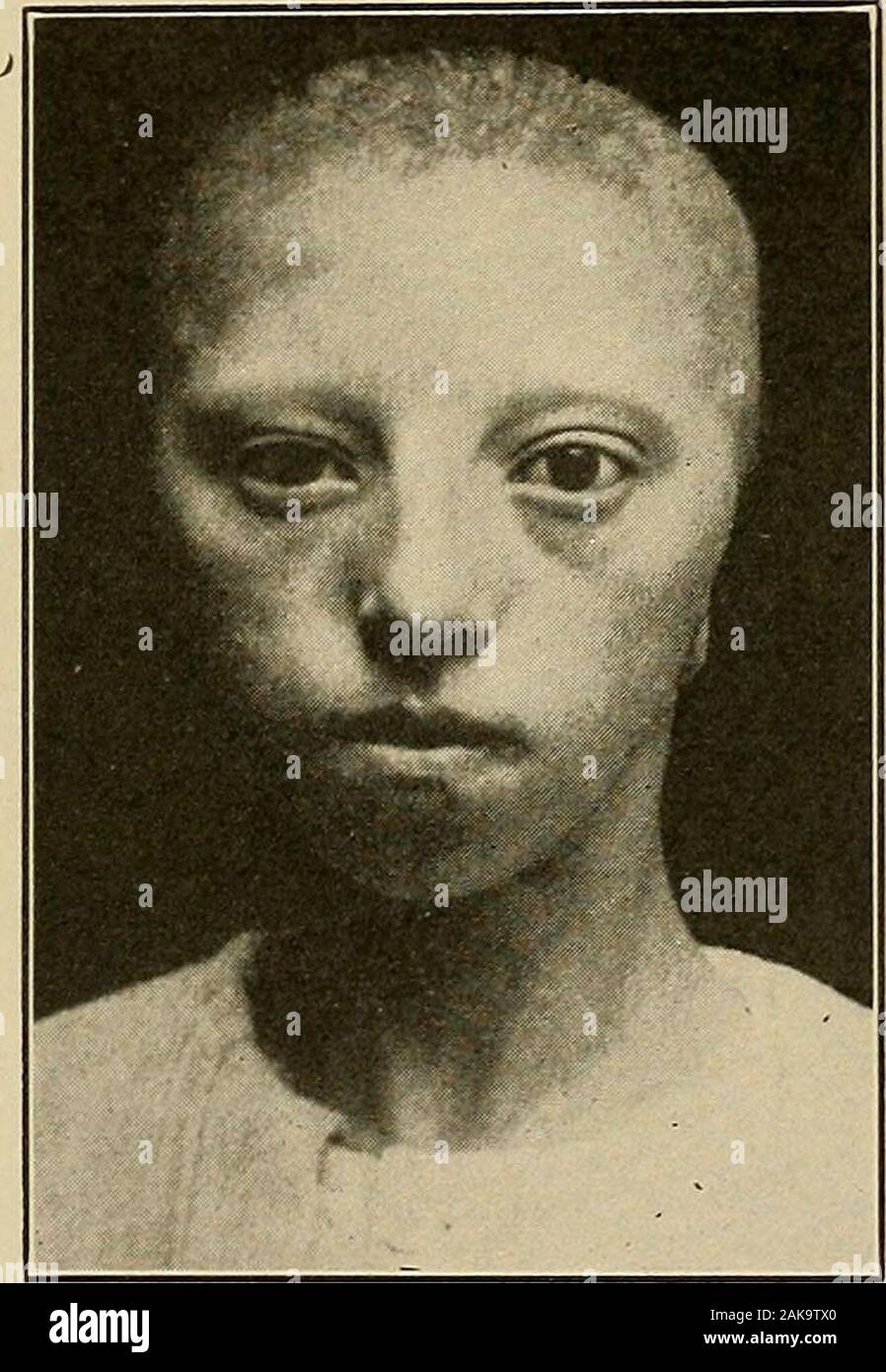Diseases of the nervous system : a text-book of neurology and psychiatry . epileptic type of defective, besides the symptoms of his defect,characteristically manifests the symptoms of the epileptic characterand is therefore quite a difficult problem with which to deal. CLINICAL VARIETIES 773 Inflammatory Types.—This group includes those conditions resultingfrom inflammation of the meninges and of the brain, found mostfrequently as a result of acute infectious fevers such as pneumonia,typhoid, and the exanthemata. Local areas of meningitis or meningo-encephalitis are not infrequent in connectio

Image details
Contributor:
The Reading Room / Alamy Stock PhotoImage ID:
2AK9TX0File size:
7.2 MB (360.1 KB Compressed download)Releases:
Model - no | Property - noDo I need a release?Dimensions:
1314 x 1902 px | 22.3 x 32.2 cm | 8.8 x 12.7 inches | 150dpiMore information:
This image is a public domain image, which means either that copyright has expired in the image or the copyright holder has waived their copyright. Alamy charges you a fee for access to the high resolution copy of the image.
This image could have imperfections as it’s either historical or reportage.
Diseases of the nervous system : a text-book of neurology and psychiatry . epileptic type of defective, besides the symptoms of his defect, characteristically manifests the symptoms of the epileptic characterand is therefore quite a difficult problem with which to deal. CLINICAL VARIETIES 773 Inflammatory Types.—This group includes those conditions resultingfrom inflammation of the meninges and of the brain, found mostfrequently as a result of acute infectious fevers such as pneumonia, typhoid, and the exanthemata. Local areas of meningitis or meningo-encephalitis are not infrequent in connection with the specific fevers, and when extensive or severe and occurring early in life produce anarrest of development, to a certain degree, of the mental facultiestogether not infrequently with epilepsy. Striimpells polioencephalitissuperior belongs in this group. Sensorial Types.—The defect in this group is the result of deprivation.Here there is no defect of the germ plasm or no defect in the structureof the brain, but owing to injury or disease which has destroyed. Fig. 328.—Sensorial type, imbecile by deprivation, middle grade. Boy, aged tenyears, deaf-mute, no ears. (Courtesy of Dr. Martin W. Barr.) the patients vision or hearing or both the child is cut off from com-munication with the outside world to such an extent that mentaldevelopment is imjDaired thereby. Theoretically these patients areof course educable, but it is only very rarely that one is found with thecapacity, the patience, and the ingenuity to develop such a child byeducational methods. The cases of Helen Keller and Laura Bridgmanstand out as illustrative of what can be done. Syphilitic Types.—Syphilitic types of defect have always beenknown in that group of cases presenting distinct evidences of hereditarysyphilis, particularly the Hutchinson teeth, linear scars about themouth and nose, and keratitis. Until, however, the discovery of theTreponema pallidum and the elaboration of the Wassermann reactio